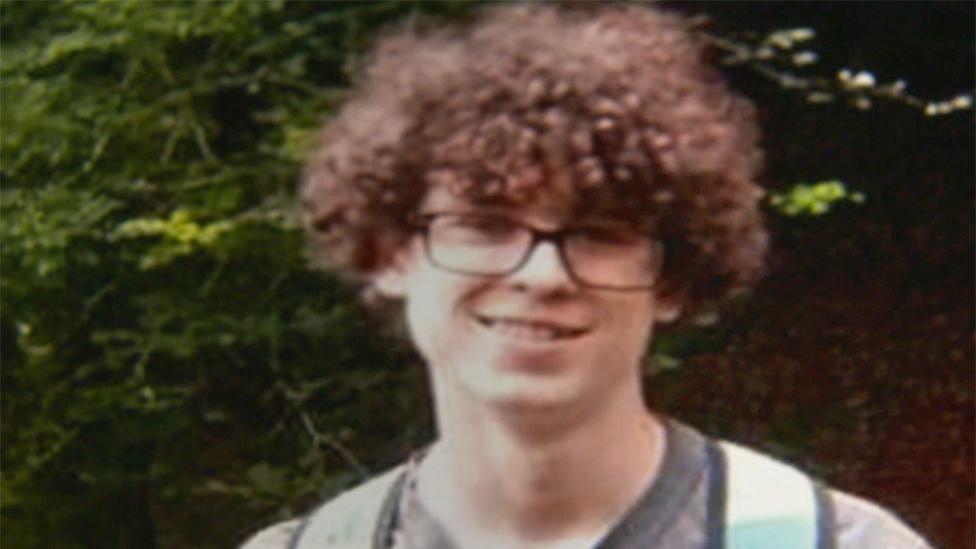Inquests may curb more mental health killings - lawyer
- Published
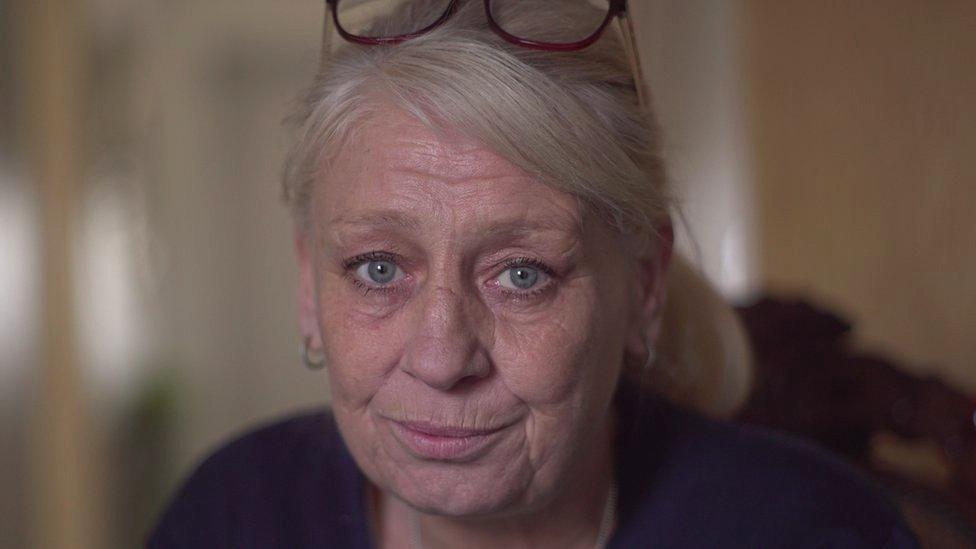
Amanda, who was stabbed by her son, says she was "appalled" at the time it had taken for the case to be reviewed
Inquests held by coroners would make the biggest difference in preventing future killings involving mental health patients, according to a senior barrister.
There have been seven Welsh homicides carried out by acutely unwell mental health patients since 2016.
However none of these have received a full coroner's inquest.
The Ministry of Justice said it could not comment on decisions by individual coroners.
A senior barrister said the Welsh government's new system to review such cases was unlikely to be enough.
Lord Alex Carlile said it would take more to hold services to account and teach the necessary lessons.
The Welsh government said its new reviews would see learning from mental health killings "adopted throughout Wales".
BBC Wales Investigates found one patient in Borth, Ceredigion, stabbed a stranger 10 days after being released from a psychiatric unit.
He was discharged despite doctors highlighting his "worsening mental state" and the risk he "posed with knives".
David Fleet, who was 20 at the time, attacked Lewis Stone, 71, while he was walking his dog because of "the voices in his head".
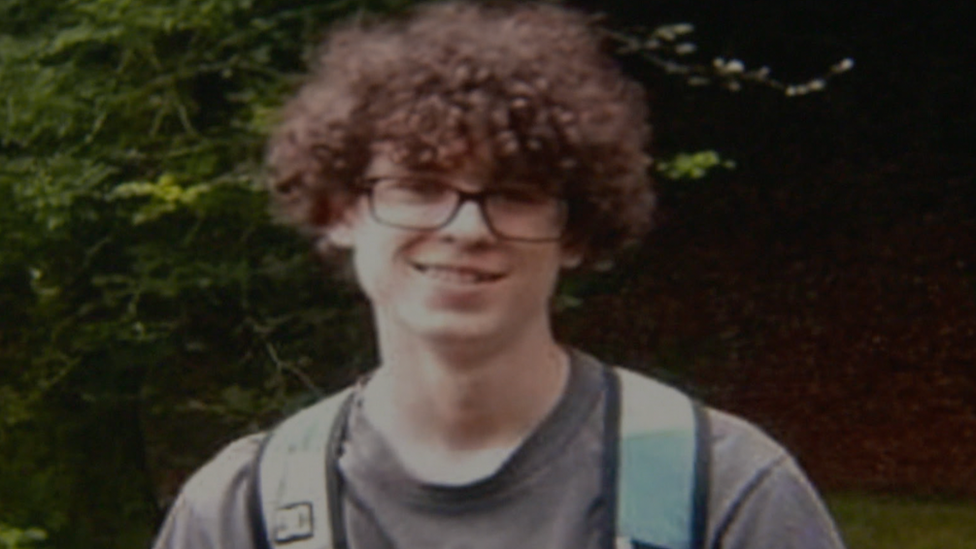
David Fleet stabbed a man to death 10 days after leaving a psychiatric unit
An internal review by Hywel Dda University Health Board into David Fleet's care found "missed opportunities," but lessons from the case were not shared directly with other health boards or made public.
The killing in 2019 received no coroner's inquest hearing or independent review.
"In Wales, in my view, the biggest single difference [to preventing mental health homicides] would be to mandate that there should be a proper inquest in each case of this type," said Lord Carlile, a previous chairman of parliamentary committees on mental health legislation.
What are coroner's inquests?
A coroner's inquest is a type of investigation into any death which appears to have unknown, violent or unnatural causes
Coroners are a type of specialist judge, most are lawyers themselves and answer only to the High Court
Their inquests are heard in public - and can involve witnesses and evidence
Normally they answer four questions: Who has died, how did it happen, where and when? However, some special forms of inquest can also look at whether any organisations may have been at fault in the build-up to the death
Coroners don't have the power to blame individuals - but can reach a "narrative" conclusion where they describe the circumstances surrounding the death - and write reports suggesting action to help prevent similar deaths
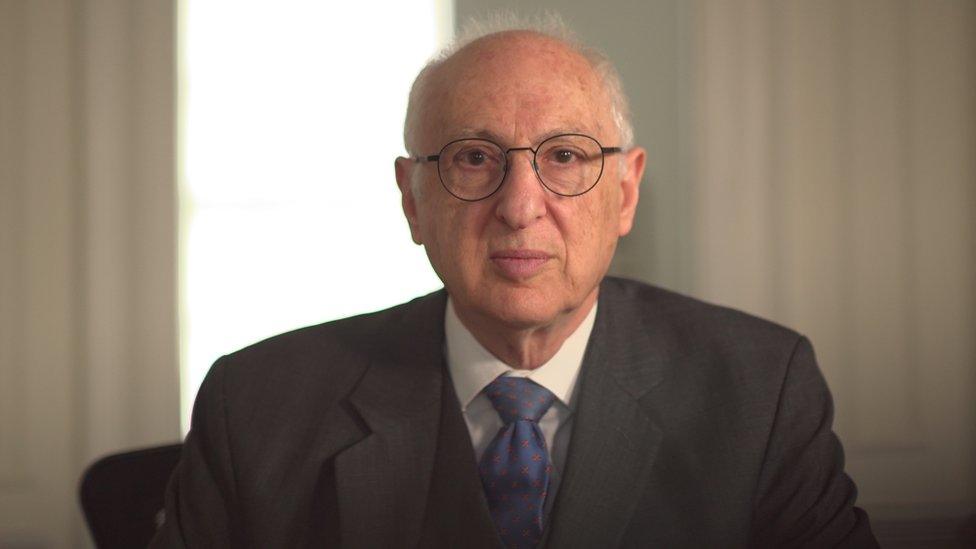
Lord Carlile said it was vital to look "at the lessons from past cases"
"It's public, so it is accountable, and the evidence is tested forensically, by which I mean the barristers or solicitors can cross-examine witnesses, including expert witnesses, to ascertain that everything is revealed," said Lord Carlile.
He said it was vital to look "at the lessons from past cases".
Several coroners' offices told BBC Wales Live that mental health homicides which all go through the crown court were unlikely to get inquest hearings too as it risked duplicating already heard material.
However, some of the families involved are concerned.
They believe more should be done to hear about potential failings and missed opportunities in the build-up to killings.
Four months after he was discharged from a psychiatric unit, Garvey Gayle stabbed his mum Amanda multiple times and killed his father in 2020.
Amanda said the attack could have been prevented if her son had been given more support.
More than two-and-a-half years later, she is still waiting to find out if there will be a coroner's inquest into Michael's death.
She is worried lessons, which could help prevent similar incidents, are taking too long.
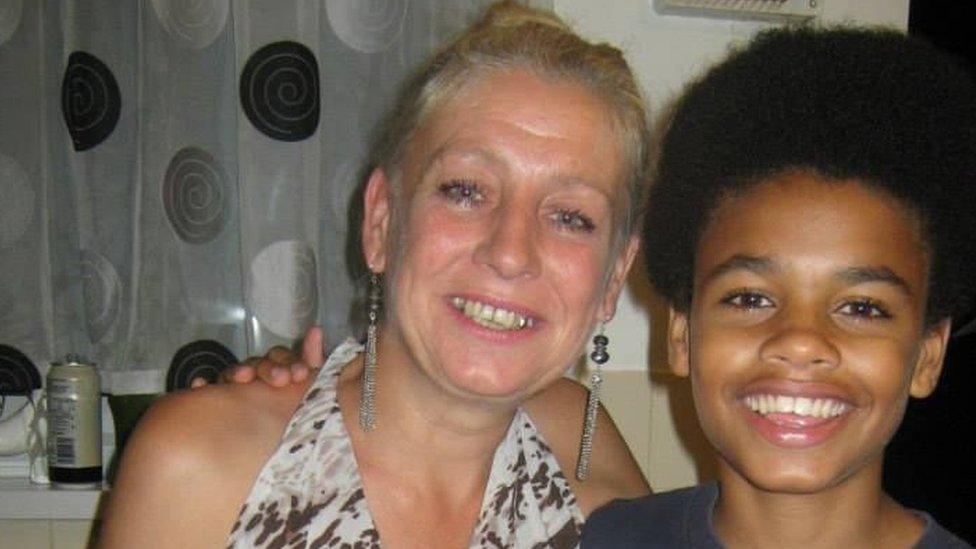
Garvey Gayle was discharged from a psychiatric unit months before he attacked his parents
"I just want some answers about how, maybe, this could have been prevented if we'd had more help," she said.
"There are a lot of unanswered questions at the moment we're still waiting on."
Amanda is now pushing for a special type of inquest, called an Article 2 inquest.
This would look at Michael's death and whether any organisations involved in her son's care need to make changes.
She said it was vital for her family that they learned whether anything could have been done to prevent the attack.
The Welsh government's new process for independent reviews into these cases is supposed to take less than a year from the time they are commissioned.
Garvey Gayle's case will be one of the first to be looked at under the new system.
Amanda said she had been told not to expect the results until after the third anniversary of Michael's death.
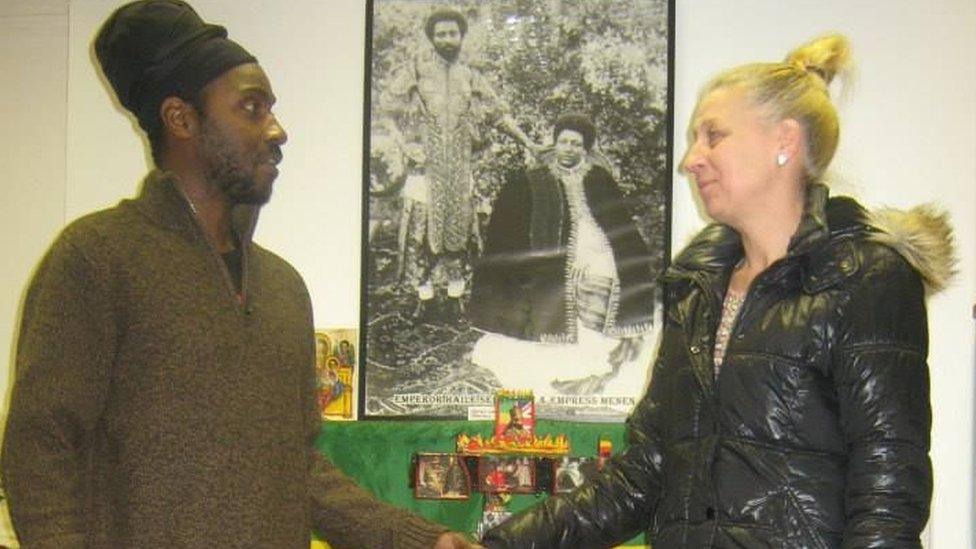
Amanda says the waiting time is not fair on the families
She said she was "appalled" at the time it had taken.
"I don't think it's fair on the family at all," Amanda added. "I don't understand why these things have taken so long. I just hope another family doesn't have to experience what we're going through."
South Wales Police, Cardiff and Vale University Health Board and the Welsh government said they could not comment on the case because of the review, external.
The Welsh government said its new review system would recognise the need for "greater co-ordination and communication" between organisations when investigating mental health homicides."
A spokesperson said the new system "eliminates" the need of multiple "onerous and traumatising reviews".
They added it will "build a greater understanding of what happened during an incident and why, and provide a clear action plan to improve services.
"Importantly, it will ensure learning is adopted throughout Wales," they added.
Wales Live is on BBC One Wales at 22:40 BST on Wednesday and on BBC iPlayer
Related topics
- Published6 June 2023
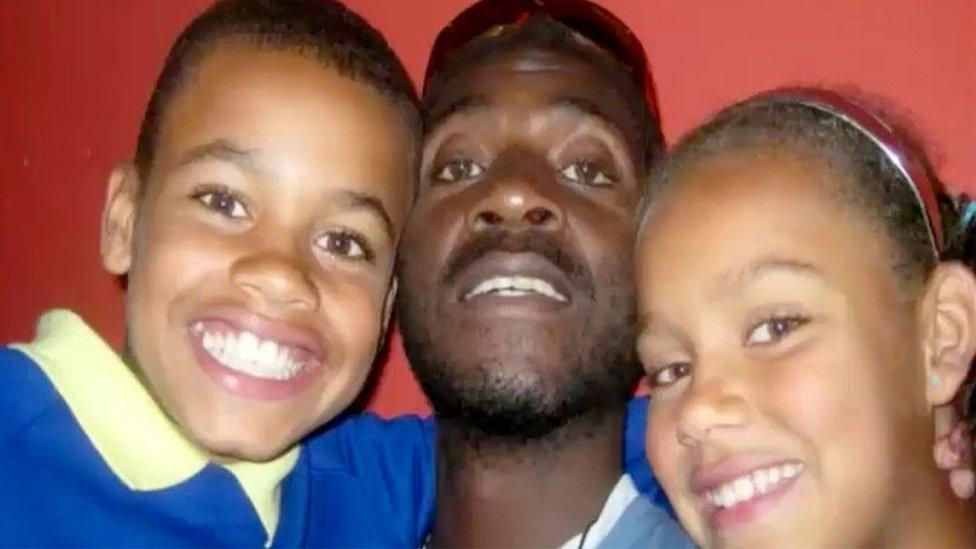
- Published1 May 2023
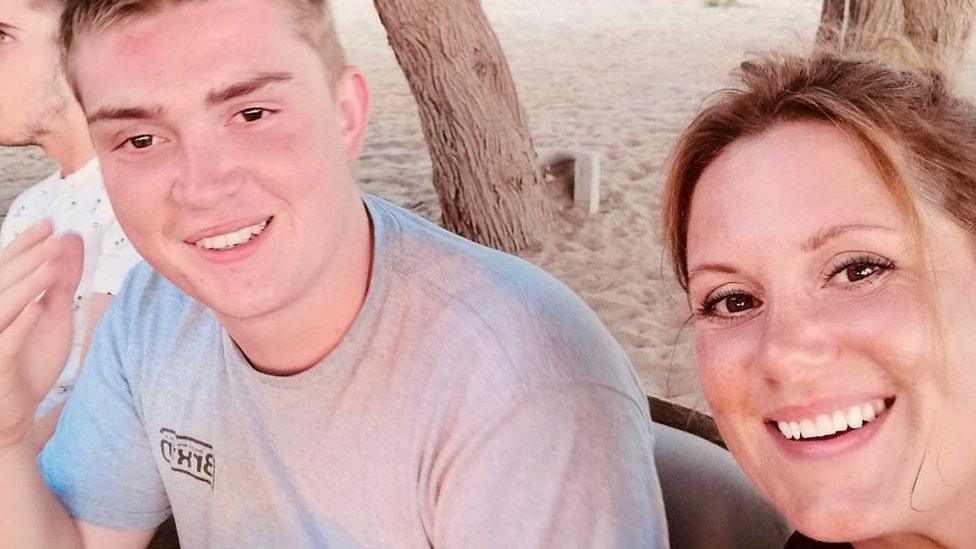
- Published5 June 2023
